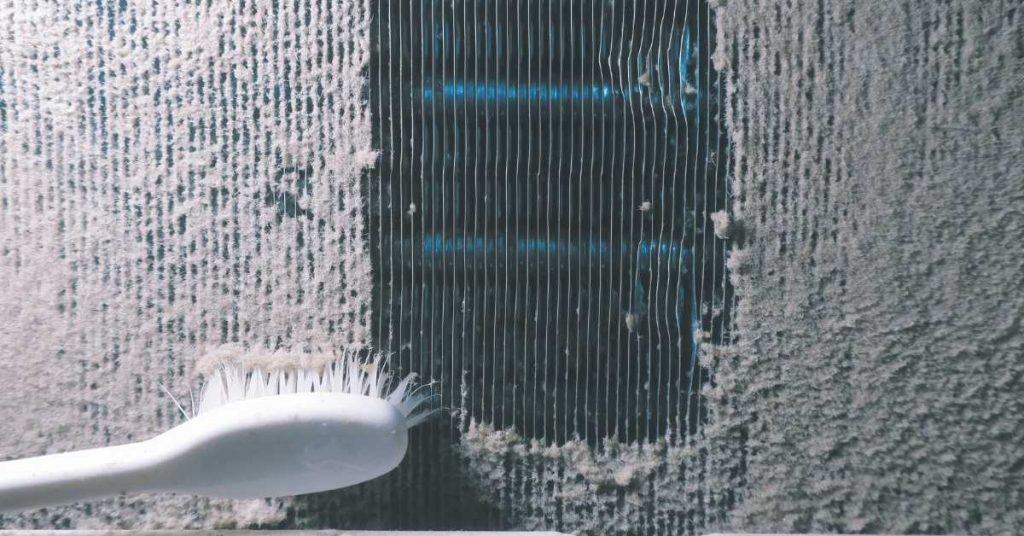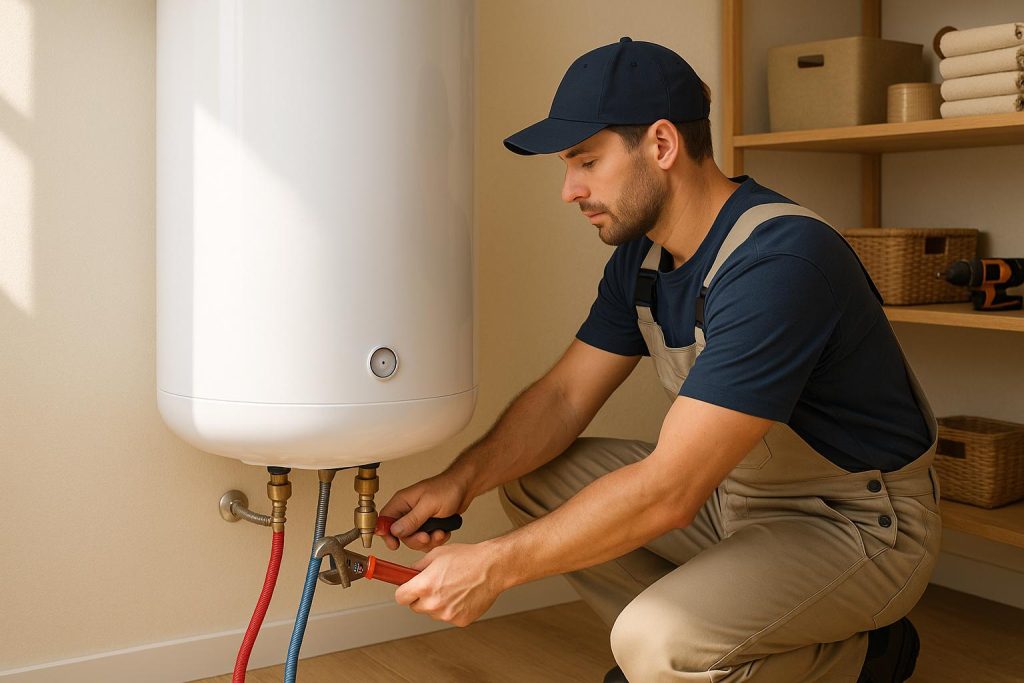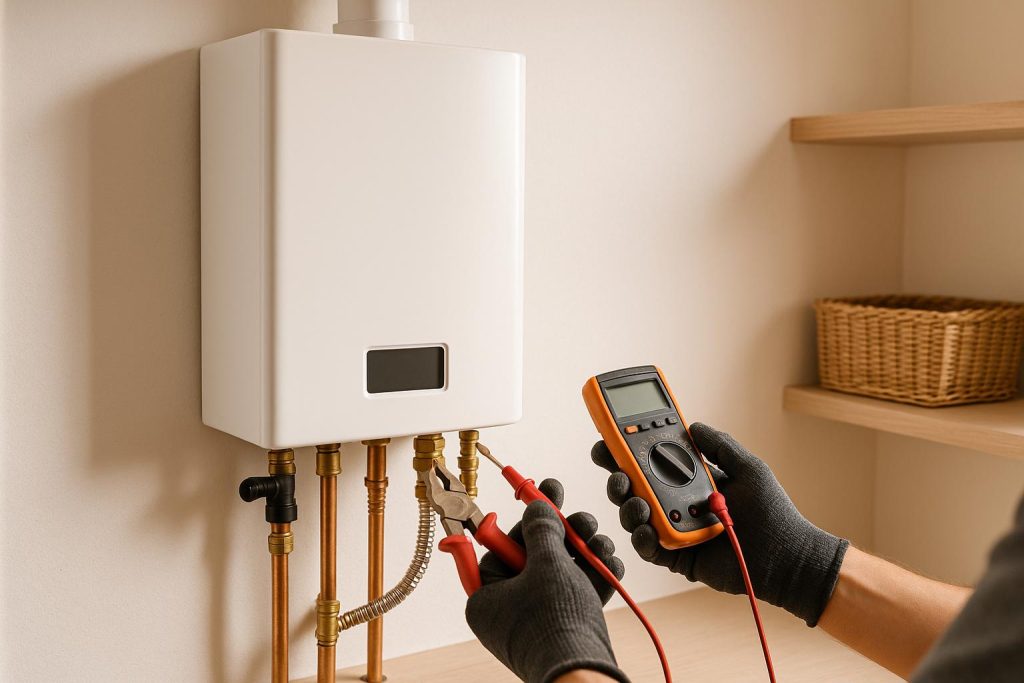
Air conditioners (ACs) can indeed reduce indoor humidity, but their effectiveness in doing so depends on several factors. Here’s a summary of how ACs reduce humidity, whether you need a dehumidifier, and when both may be beneficial:
How ACs Reduce Humidity
- Air conditioners lower indoor humidity by removing moisture from the air during the cooling process.
- When warm, humid air enters the AC unit, it passes over evaporator coils. As it cools, moisture in the air condenses on the coils and is collected and drained away.
- The cooled and dehumidified air is then circulated back into your home, resulting in a more comfortable and less humid indoor environment.
Do You Need a Dehumidifier?
The need for a separate dehumidifier alongside your AC depends on your specific circumstances:
- Climate: If you live in a hot and humid climate, your AC is likely sufficient for reducing indoor humidity when it’s running. However, during milder or cooler seasons, when you may not want to use the AC, a dehumidifier can help maintain ideal humidity levels.
- Humidity Levels: If your indoor humidity remains consistently high despite running the AC, a dehumidifier can be a valuable addition to your home.
- Specific Moisture Issues: If certain areas of your home, such as the basement, are prone to excess moisture and humidity, a dehumidifier can target these specific problem areas.
- Health Concerns: If anyone in your household has allergies or respiratory issues aggravated by high humidity or mold growth, a dehumidifier can help create a healthier indoor environment.
When Both AC and Dehumidifier May Be Beneficial
In some cases, using both an AC and a dehumidifier can be beneficial:
- During hot and humid weather, the AC provides cooling and dehumidification.
- In cooler seasons when you may not want to use the AC, a dehumidifier can maintain ideal humidity levels.
- In regions with extreme humidity, both systems working in tandem can ensure optimal comfort and prevent moisture-related issues.
How Does AC Remove Humidity
To understand how an air conditioner removes humidity from the indoor air, I believe you should also first understand how air conditioners work.
Air conditioners have an indoor and an outdoor unit. The indoor unit is basically the evaporator coil and that is where indoor air is cooled and it is also the same place where humidity in the air is removed.
The outdoor unit is where the heat absorbed in the house is released to the outside air. Here we have the condenser coil and the compressor. Indoor unit and outdoor unit are connected using copper pipes and a refrigerant/coolant circulated between them.

The refrigerant is a chemical with a low boiling point but high latent heat which means it changes from liquid to gas and back to liquid easily, absorbing and releasing a lot of heat in the process.
When the refrigerant absorbs heat from the indoor air, it evaporates (changes from liquid to gas), leaves the evaporator coil and enters the compressor.
Inside the compressor, the refrigerant gas is compressed which increases its pressure. An increase in pressure also means an increase in temperature.
Increasing the temperature of the refrigerant relative to the outside hot air makes it possible for the refrigerant to lose heat to the surrounding air due to the temperature differential created. As you know, heat moves from a point of high concentration to a point of low concentration.
From the compressor, the refrigerant enters the condenser coil where it loses heat to the outside air. The condenser fan helps to accelerate this process. By the time it is exiting the condenser coil, the refrigerant will have changed from gas to liquid.
Before the refrigerant enters the evaporator coil, it is first forced through an expansion valve. An expansion valve is simply a restriction that that helps to lower the pressure of the refrigerant, which also makes its temperature fall drastically.
By the time the liquid refrigerant is entering the evaporator coil, it will be a very cold liquid (at 32 degrees). As the refrigerant is flowing through the coil, the evaporator fan pulls the warm and humid air from the house through the return air ducts.
The air is pushed across the coil and the refrigerant absorbs heat from the air. That is how cooling happens. The cooled air is then forced out and back to the house through the supply ducts (if you have central air).
When the water vapor comes into contact with the cold evaporator coil, condensation occurs. The vapor turns from gas to liquid and drips on the condensate drain pan located under the evaporator coil.
When enough condensation has dripped on the pan, the AC condensate drain line removes it to the outside of the house. The drain line can also be connected to the house plumbing lines.
And basically that is how an air conditioner removes humidity from the indoor air.
How to Make Your AC Remove More Humidity

There are several ways to make your air conditioner remove more humidity from your indoor air. The following are the best ways to do it.
1. Size It Properly
If you are in the market for a new air conditioner, you need to make sure that you get the size right. What most people fail to understand is that bigger is not necessarily better.
A big air conditioning unit will only need to run for a few minutes to cool your indoor air and then it will turn off. That is good for cooling but not lowering humidity.
In order for an air conditioner to effectively remove humidity from the air, it needs to run for a longer period of time. Oversized AC units will therefore not reduce the humidity in the house.
2. Run the Fan on Auto
Is your fan on the “ON” position instead of “AUTO”? That is a mistake done by most homeowners and it could explain why you are dealing with high humidity levels in the house.
Do you know why having the fan on “AUTO” is better than on the “ON” position? When you have the fan set to “AUTO”, the condensation collects and sits on the coil and when the fan turns off in between cooling cycles, it drips on the drip pan below the coil and drains out of the house.
On the other hand, having the fan on the “ON” position means that it will be running throughout. As such, the condensation does not have enough time to drip out but rather evaporates and get forced back right in the house.
3. Regularly Clean your Evaporator Coil

Even though air conditioners have air filters, some dust particles still manage to pass through and embed on the evaporator coil housing. When more and more dirt is embedded, it may prevent warm and humid air the house from getting to the coil.
If the air cannot get to the coil, not only will your air condition fail to cool the air properly but it will also not reduce humidity.
Cleaning the evaporator coil will prevent that from happening. Even if you can’t do it yourself, have the technician do it when they come for scheduled maintenance.
4. Schedule Regular Maintenance
It is quite important that you have scheduled maintenance for your AC by an HVAC professional. Among the things the technician will do is changing AC filters, checking refrigerant levels, cleaning and inspecting the ductwork for leaks etc.
Dirty air filters have the same effect as dirty evaporator coils. The airflow to the coil is restricted meaning that the AC will neither cool the house nor remove the humidity as it should.
When the refrigerant levels are low, less heat will be removed from the indoor air. That also means that removal of humidity will be low as well.
As a matter of fact, low levels of the refrigerant will make its temperature fall below freezing point and the AC will freeze. A frozen AC will be covered in a block of ice which can continue building up even on the AC pipe outside.
Leaking or clogged air ducts also restrict the flow of warm air from the house to the evaporator. That is why you need regular AC maintenance by a professional technician.
Do I Need a Dehumidifier if I have Air Conditioning?

The primary function of an air conditioner is to cool your indoor air. Dehumidification is secondary and totally accidental.
So, is a dehumidifier a necessity if you have an air conditioner? The short and so helpful answer to that question is “It depends”.
To remove more humidity from your indoor air, you have to keep the air conditioner running longer. That is actually quite expensive and you may decide to just have a dedicated appliance to deal with the humidity.
Also, if you have an oversized air conditioner that is short-cycling, it will definitely not remove humidity from the house. In that case you may want to install a dehumidifier.
If you have a heavily insulated house you will struggle with humidity and you will need a dehumidifier to help you to deal with it. While insulation helps with heat, that the moisture has nowhere to go and that is where a dehumidifier comes.
People who live in humid areas like Florida should consider installing a dehumidifier. For those in desert areas whose only concern is cooling indoor air then an AC unit will be sufficient.
A dehumidifier is more effective in dealing with humidity more than air conditioners. Excess humidity is not only uncomfortable for you but it may also shorten the lifespan of your AC, damage your furnishing and may cause musty smells in the house.
I can therefore conclude by saying that installing a dehumidifier is the best way to reduce humidity in the house. ACs will try but they will not lower to the best levels.





